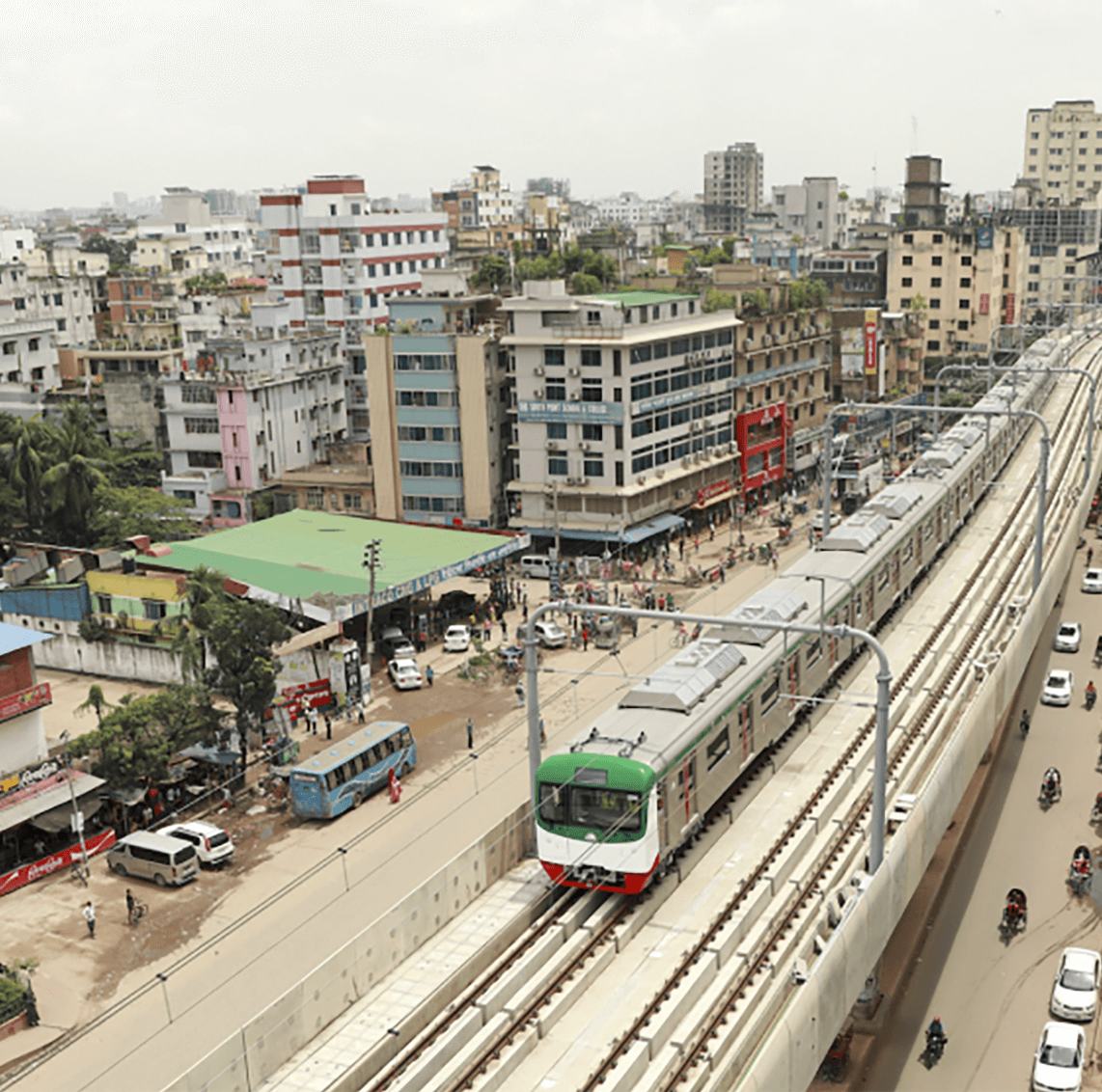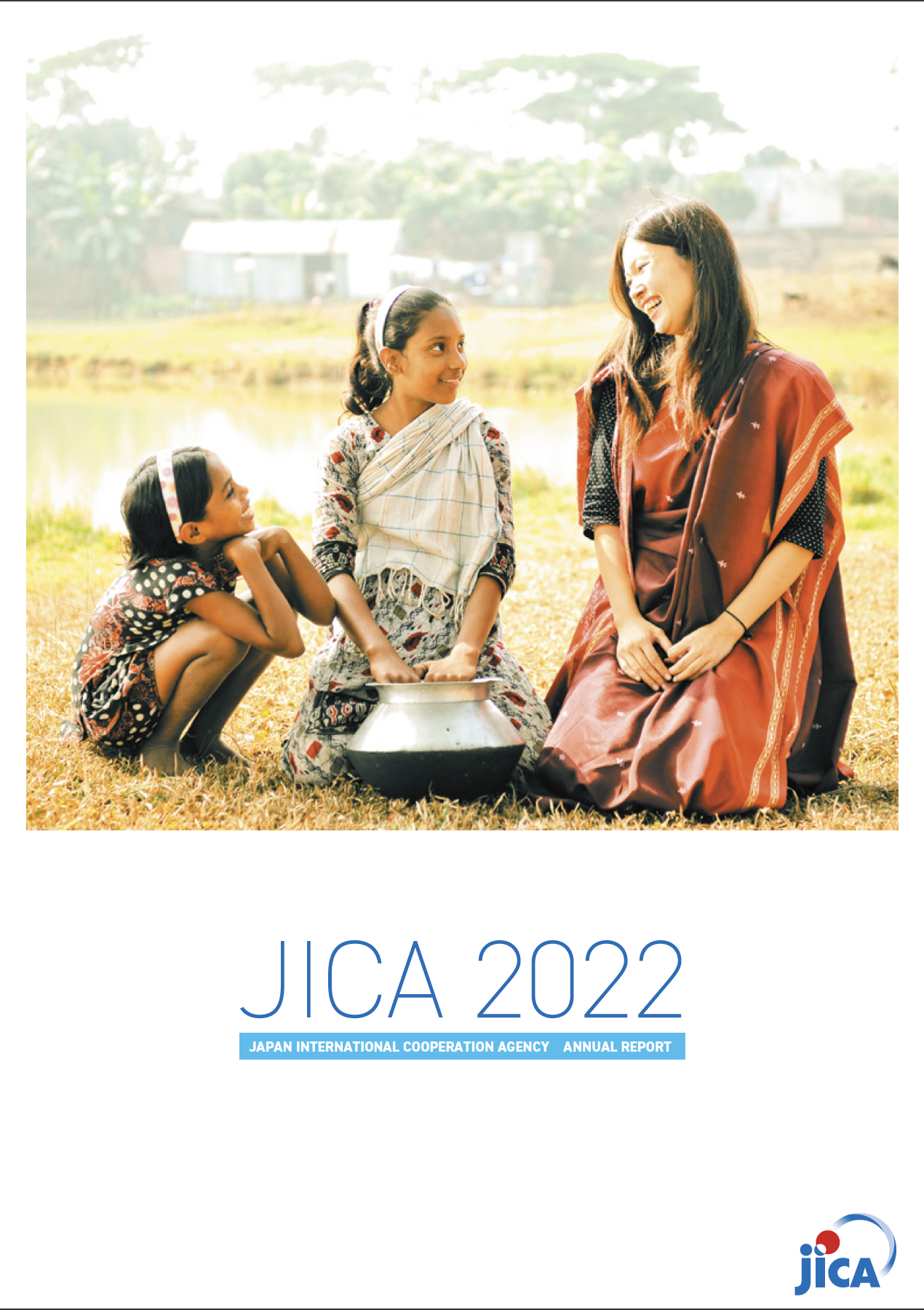strategy
Direction of JICA’s Development Activities

JICA’s Endeavors: Six Pillars of Operations in Fiscal 2022
The world is now facing complex threats, such as the undermining of the foundation of international order, the COVID-19 pandemic, and climate change, among other global issues. With the mission of advancing both human security and quality growth, JICA will push ahead with initiatives toward creative reconstruction for developing countries and their achievement of the SDGs. In doing so, JICA will promote digital transformation (DX) and cooperation with diverse partners to maximize development effectiveness.
1 Ensuring a Free and Open Indo-Pacific (FOIP)
The world today is seeing conflicts and political disturbances that undermine the foundation of international order. This makes it more important than ever before to protect universal values such as freedom, democracy, the rule of law, and the freedom of the seas.
Based on universal values that are flexibly defined to reflect the history, culture, and development status of respective countries, JICA will play its role in realizing the Japanese government’s vision of a Free and Open Indo-Pacific (FOIP) and contribute to peace and prosperity not only in the Indo-Pacific region but also in the world as a whole. In the process, JICA will advance development cooperation that capitalizes on Japan’s strengths while respecting partner countries’ ownership and building trust with all the stakeholders involved in JICA’s operations.
2 Responding to COVID-19 and Realizing Human Security
As the impact of COVID-19 on society drags on, the world shares the common challenges of addressing vulnerable health care systems and preparing for potential infections in developing countries. JICA will advance JICA’s Initiative for Global Health and Medicine to achieve Universal Health Coverage (UHC), which ensures that all people receive health services without suffering financial hardship. It will also strengthen cooperation that contributes to improvements in such sectors as water and sanitation, as well as food and nutrition, for the most vulnerable, who are particularly susceptible to the negative impacts of the current and future pandemics.
Through such efforts, JICA will contribute to build more resilient economies in developing countries toward societies where everyone can live with dignity.
3 Strengthening Climate and Environmental Action
The global environment, as an international public good, is increasingly deteriorating. Developing countries are most vulnerable to the effects of this deterioration. With both people’s livelihoods and national development under constant threat, developing countries are in a difficult position of having to address climate change and at the same time promote sustainable development.
As a partner of developing countries, JICA will help them with climate action while aiming to achieve human security and quality growth. Standing by developing countries, JICA will scale up cooperation in both mitigation and adaptation. The scope of mitigation will cover, for example, energy transition that accommodates the situations in each country and public transportation development. The scope of adaptation will encompass such sectors as infrastructure, disaster risk reduction, water resources, and agriculture. In the process, JICA will proactively promote the mobilization of private funds amid growing interest in ESG investment, as well as the utilization of new technologies.
4 Strengthening Japan’s Multicultural Coexistence and Regional Economic Revitalization
The Japanese government is moving to accept more foreign human resources and to promote coexistence in society. For its part, JICA will enhance efforts toward multicultural coexistence and regional economic revitalization in Japan.
As one such effort, JICA will work to improve the environment for accepting foreign human resources before, during, and after their stays in Japan. It will also support multicultural coexistence in Japanese society. In the process, JICA will make the most of its experience with human resources development programs as well as its human capital—such as former JICA volunteers—and national and international networks that it has developed over the years. In addition, JICA will contribute both to the sound development of developing countries and to a prosperous and sustainable Japanese society through collaboration and co-creation with private companies in Japan.
5 Promoting Gender Equality and Respecting Diversity
Gender equality is a universal value associated with the concepts of human rights and human security. It is an issue that Japan should work on in closer cooperation with developing countries and others.
JICA will implement development cooperation projects that respect diversity and incorporate gender perspectives across all sectors and issues toward realizing human security. By contributing to international commitments as well as to the Japanese government’s action plans, JICA will disseminate to the world what JICA is doing to respect diversity in general and gender equality in particular.
6 Updating Operations to Meet 21st-century Needs
Assistance needs for developing countries continue to change, especially since the global outbreak of COVID-19.
By using data and employing digital technologies, JICA will explore the feasibility of DX in all its operations with the aim of “giving JICA a cutting edge with digital technologies.” In closer cooperation with Japanese and international partners, JICA will adopt and utilize in its projects the types of science and technology that are useful in addressing challenges in developing countries. Moreover, JICA will expand cooperation with diverse partners, mobilize various funds, advance the JICA Global Agenda, and promote Private-Sector Investment Finance and private investment in order to make its projects more efficient and to maximize their impacts.

JICA Annual Report 2022